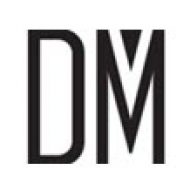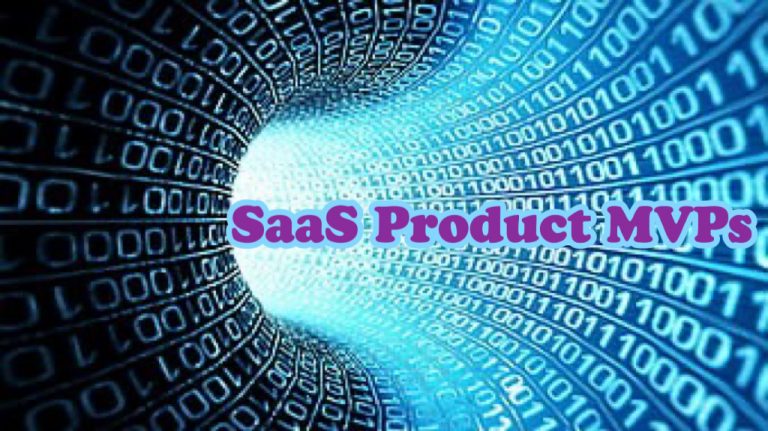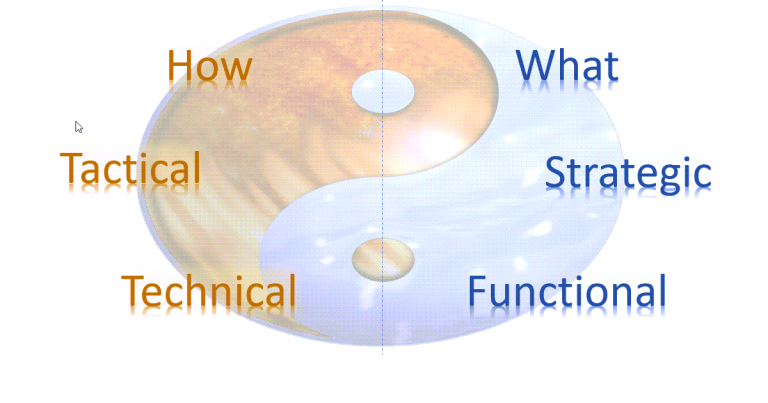Product Management: 3 Ways to Balance Strategic & Tactical Focus
This post explores the challenges of tasking tech product managers to context-switch between strategic and tactical focus areas. These apply to the development of software applications, SaaS products and managed service offerings.
The Spectrum Spanning Tactical to Strategic
Imbalance can creep up on modern-day tech product managers when they are continuously required to context-switch across tactical focus and strategic focus. With that, project management required to implement new features across the greater org can fall on them as well. Tactical effort here can entail detailed planning and composition of documentation such as requirements, user stories and product specs that have been prioritized for development. The strategic effort that this competes with is the process for identifying, evaluating and prioritizing the very initiatives that require the aforementioned tactical details at the other end of the spectrum.
This can creep up on your product organization because allowing tactics to trump strategy costs your organization in the future. Strategy is the prism that product managers provide to your organization to foresee and plan your competitive edge in the marketplace. It is very easy to borrow (i.e. accrue functional debt) that crucial capacity to spend on the tactical needs of the present, such as for speed of delivery on a project you need to get out the door.
Speed of delivery tactics in the present and strategy for the future are both crucial. Here are some ways to consider for striking a balance across both.
3 Ways to Balance
Offload to Technical Team Member(s)
One way to liberate product managers from tactical burdens is to task technical team members such as lead developers or engineering managers with the creation of functional specs, stories and requirements along with a share of the project management required for implementation.
This can work if your product is of minimal functional complexity.
Caveats to Consider
If the domain of your product is functionally complex, such that its usability requires deep process analysis or broad knowledge of a business domain/guild (such as infosec, healthcare, supply chain, accounting, etc.), technical practitioners may end up being a source of functional debt for your product.
Offload to Operational Team Member(s)
Operational team members are another candidate for offloading tactical product development burdens. This includes people who do front-line support for whatever niche your product serves.
This can work if your operational staff are technically savvy, and/or have experience working in and around systems development. People who understand the inner workings of technical systems can hit the ground running to learn the art of writing user stories and participating on agile development teams. Having them directly involved in delivery also eases the burden of implementation project management.
Caveats to Consider
If your ops staff is non-technical, they can detract from morale and productivity if thrusted into the mix of tech product development. Today’s technical teams have a culture and a way of doing things, which require experience and understanding on how to contribute.
Expand Your Functional Capability Infrastructure
Your shop may be at a size/shape where it needs to consider creating a functional center of excellence. This could take the form of a traditional PMO, a delivery management office or a center for implementation projects. Regardless of what you call it, the entity should be staffed with functional practitioners who are skilled in the functional tactics required to liberate your product management group while maintaining quality, speed and morale in and around your development shop. This can add significant long-term value to your product and shop.
Caveats to Consider
In addition to this adding costs and/or head-count to the shop, we often underestimate the challenges in deriving value from these entities. Most often, we underestimate the leadership experience required to build and operate these domains. The functional guilds that master these tactical fundamentals for creating tech specs/stories, business rules, performing project management and overseeing implementation org-wide are no-less critical to a healthy tech shop than those who write software code, administer databases or engineer technical infrastructure. Operating a center of excellence without the right functional leadership, loosely by committee or with inadequate commitment/resourcing can detract rather than add value to your shop.
Closing
The product management burdens of shouldering both tactical focus and strategic focus simultaneously are commonplace in the modern startup, but not insurmountable. Hopefully these ideas offer ways to maintain speed and quality of delivery while allotting adequate strategic focus across your IT organization.
Mike Liskow is a business development consultant, writer, artist, entrepreneur and thought leader in the business development space for tech startups. D'Mention Systems was established in 2003 and provides business development consulting engagements for tech startups.






